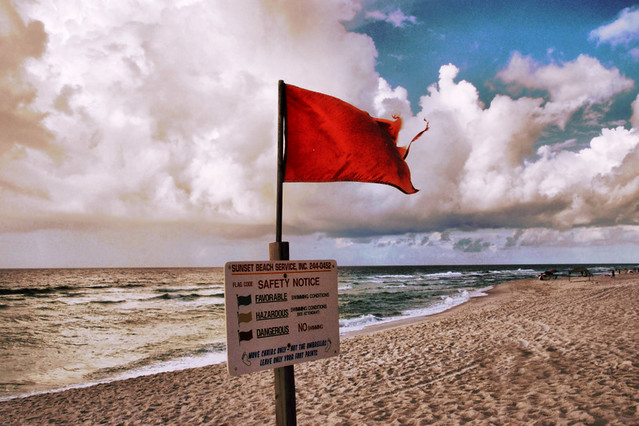
![]()
![]()
![]() Some rights reserved by Bob AuBuchon
Some rights reserved by Bob AuBuchon
This is an unfortunate story that entrepreneurs should read and understand.
We start companies for a number of different reasons. We want to change the world. We want to solve problems. We are unemployable. We are crazy. And we stay up at night worrying about taking care of our employees, our customers, our investors.
So it is hard to understand how well regarded funds wind down companies without providing information to employees.
Investor immorality: The strange case of Blue Noodle
Start-ups fail all the time. But there is a right way and a wrong way to do it. This is an example of the wrong way.
On Monday, most employees of social media startup Blue Noodle didn’t get paid. They called their lead venture capital firm, which wouldn’t discuss the situation with them. They called their former CEO, who refused to pick up the phone. They called their lender, who said to call the venture capital firm. And thus the circle began anew.
“In my more than 20 years of working in Silicon Valley, I’ve been involved on more failed companies than I’d like to admit, but there is always an orderly win-down process,” says John Montgomery, chairman of law firm Montgomery & Hansen. “It sounds like the VCs in this case are treating the company like a car they abandon in a parking lot with the keys in the ignition.”
First, the employer is required, by law, to provide records of employment. The Federal Government requires this, and someone could find themselves facing serious fines for not complying with the law. That would likely fall onto the CEO at the time, the COO or the CFO.
Second, in most provinces, the board of directors is personally, jointly and severably liable for unpaid wages and unpaid expenses. They continue to be responsible for up to 2 years after resignation (at least in Alberta, Ontario might be slightly different). The employees, unfortunately, have to do two things. First, they have to sue the existing company that owes them the money. If that company can’t or won’t pay, they then can sue the directors. They could just sue one director, and then that director can go after the others to get their share, if that is easier (for example, sue the director who lives in Ontario). If the directors lose, then the employees can seize money from bank accounts, and force the directors to sell personal assets to cover the money. However, expect this process to take 2-3 years from start to finish, if it goes the distance. It will be shorter if a settlement is negotiated in advance.
Most companies carry directors and officers insurance to cover just such actions, but those are only in force if the premiums on the policy have been paid.
What the employees cannot do is sue shareholders. They are not responsible for unpaid wages and such. That’s part of the “corporate veil” that protects shareholders from that sort of thing. The liability resides with the company and its current and recent directors.
Woah, you realize that BlueNoodle = NeoEdge/GWN = Steven Woods + Dan Servos. I mean Steven Woods is still listed as the Chairman in his own Linkedin. He doesn’t have the capital to help clean this up so they can shut down properly??? More info needed…
Also – debt sucks, and this is a great example why. You can lose your company.
This is a disaster of extreme proportions. Dan and Steve are great guys. I hope they come out unscathed, as @3fc90a22c699123e5775d5ad1865c059:disqus mentions below there are legal risks and measures for corporate directors.
Venture debt is something that is an option see http://www.avc.com/a_vc/2011/07/financing-options-convertible-debt.html but it does carry a lot of different risks. Often we see convertible notes, specially at the early stage, but there are risks. These can be even more prevalent when debt loads get higher.